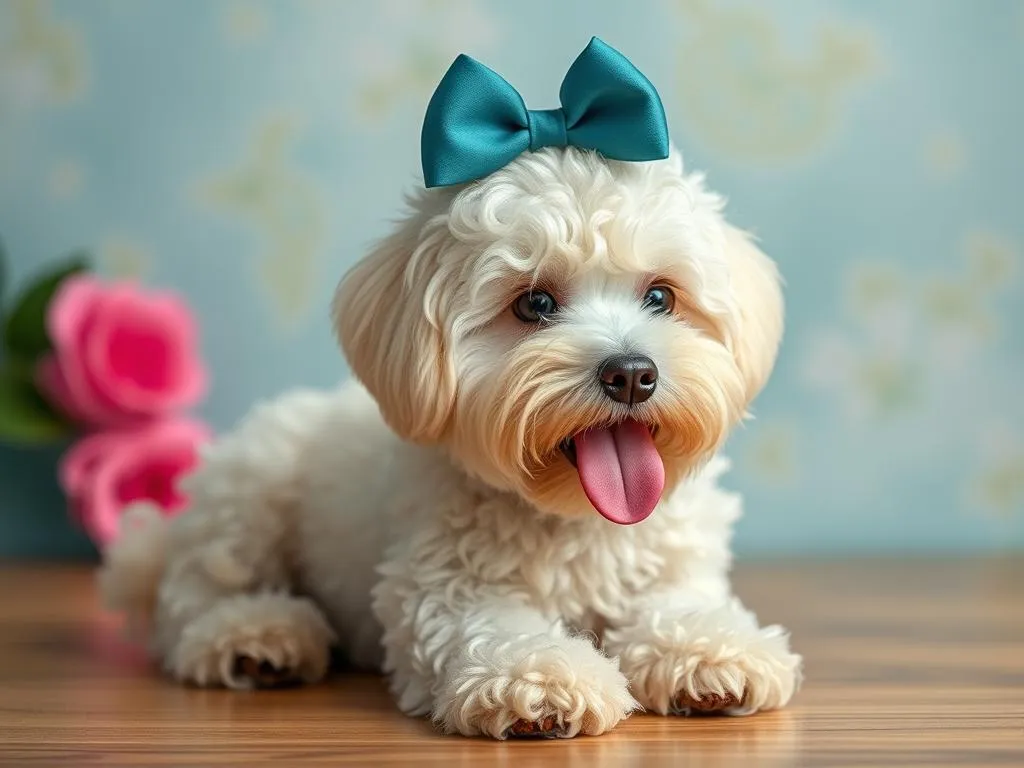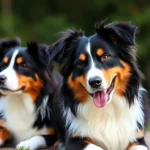
Introduction
Dog breeds encompass a diverse range of canine varieties, each with unique traits, histories, and characteristics that make them suitable for different lifestyles and families. The significance of choosing the right breed cannot be overstated, as factors such as lifestyle, allergies, and activity level play crucial roles in ensuring a harmonious relationship between dogs and their owners. Among the many breeds available today, the Malti Poo, a delightful mix of the Maltese and Poodle, has gained immense popularity due to its charming personality and adaptability.
Overview of the Malti Poo
History and Origin
The Malti Poo is a designer breed that emerged from the crossing of the Maltese and the Poodle. Each parent breed has a rich history. The Maltese is one of the oldest toy breeds, tracing its roots back to ancient Mediterranean civilizations, where they were cherished as companion dogs. Known for their affectionate nature and long, silky coats, Maltese dogs have always been loved for their charming presence.
On the other hand, the Poodle, initially bred as a water retriever in Germany, has a long-standing reputation for intelligence and versatility. Poodles come in three sizes: standard, miniature, and toy, with the latter two being the most common for crossbreeding. The combination of these two breeds resulted in the Malti Poo, known for its endearing qualities and hypoallergenic traits.
Physical Characteristics
In terms of size, Malti Poos typically weigh between 5 to 15 pounds and stand about 8 to 14 inches tall. Their small stature makes them an ideal choice for apartment living and families with smaller homes.
The coat of a Malti Poo is one of its most appealing features, often characterized by a soft, curly, or wavy texture inherited from the Poodle. Their coats can come in various colors, including white, cream, apricot, and even black, making each Malti Poo unique. Their faces are often round with expressive eyes and floppy ears that add to their adorable appearance.
Temperament
The temperament of a Malti Poo is generally friendly, playful, and affectionate. They thrive on companionship and are known to bond closely with their families. Their playful nature makes them excellent companions for children, although supervision is always recommended due to their small size.
Malti Poos are also known to get along well with other pets, making them a suitable addition to multi-pet households. Their sociable disposition often means they enjoy being the center of attention, and they thrive in environments where they receive ample love and interaction.
Care and Maintenance
Grooming Needs
Proper grooming is essential for maintaining the health and appearance of a Malti Poo. Their coats require regular brushing, ideally every few days, to prevent matting and tangling. Depending on the individual dog’s coat type, professional grooming every 4 to 6 weeks may also be beneficial to keep their fur healthy and manageable.
Bathing should be done every 4 to 6 weeks, using a gentle dog shampoo to avoid skin irritation. It’s important to ensure that their ears are cleaned regularly and nails are trimmed to prevent discomfort.
Health Considerations
Like all breeds, Malti Poos are prone to certain health issues. Common concerns include dental problems, eye issues, and patellar luxation (a dislocated kneecap). Regular veterinary check-ups are crucial to catch any potential health issues early.
Establishing a vaccination schedule and adhering to preventative care measures, such as parasite control, will help ensure your Malti Poo remains healthy throughout its life.
Nutrition
Feeding your Malti Poo a balanced diet is vital for its overall well-being. High-quality dog food formulated for small breeds is usually recommended, as it caters to their specific nutritional needs. It’s important to follow feeding guidelines based on their age, weight, and activity level.
Portion control is essential to prevent obesity, which can lead to various health issues. Human food should be avoided, as many common foods can be toxic to dogs. Consulting with a veterinarian for specific dietary recommendations can help ensure your Malti Poo maintains a healthy weight and receives the right nutrients.
Training and Socialization
Basic Training Tips
Early training is crucial for a Malti Poo to develop into a well-behaved companion. Positive reinforcement techniques, such as treats and praise, work best with this breed. Basic commands like sit, stay, and come should be taught early on to establish good behavior patterns.
Consistency in training is key. Short, engaging training sessions can help keep your Malti Poo focused and eager to learn.
Socialization Strategies
Socializing your Malti Poo with other dogs and people is essential for developing a well-rounded temperament. Introducing them to new experiences, environments, and other animals from an early age will help them grow into confident adults.
Recommended activities include puppy classes, dog parks, and playdates with other dogs. Observing your dog’s behavior during these interactions can provide insights into their social skills and comfort levels.
Lifestyle Considerations
Ideal Living Conditions
Malti Poos adapt well to various living conditions, making them suitable for both apartments and houses. However, they thrive in environments where they can receive ample attention and exercise.
Climate considerations are also important; Malti Poos do best in moderate climates. Extreme heat or cold can be uncomfortable for them, so providing a comfortable indoor environment is crucial.
Exercise Needs
Though Malti Poos are small, they require regular exercise to maintain their health and happiness. Daily walks, playtime in the yard, and interactive toys are excellent ways to keep them active.
Mental stimulation is equally important; puzzle toys and training sessions can engage their minds and prevent boredom, which can lead to behavioral issues.
Compatibility with Family
Malti Poos are incredibly versatile and fit well into various family structures. They are particularly good with children, provided that the kids are taught to be gentle and respectful.
When introducing a Malti Poo to existing pets, it’s essential to take the introduction slowly. Supervised interactions will help ensure a smooth transition and foster positive relationships among all pets in the household.
Cost of Ownership
Initial Costs
When considering a Malti Poo, it’s essential to factor in initial costs. The purchase price or adoption fees can vary significantly, ranging from $500 to over $2,000, depending on the breeder and location.
Initial supplies will also incur costs, including a bed, food and water dishes, toys, grooming tools, and a crate, which may total around $200 to $500.
Ongoing Costs
Ongoing expenses for a Malti Poo primarily include food and treats, grooming, and veterinary care. Monthly food costs can range from $30 to $50, depending on the quality and brand of dog food chosen.
Grooming costs can vary widely, with professional grooming sessions potentially costing $50 to $100 each time. Additionally, regular veterinary visits, vaccinations, and preventative care will add to the overall cost of ownership.
Pet insurance is also worth considering, as it can help mitigate unexpected veterinary expenses, especially for potential health issues common in smaller breeds.
Conclusion
The Malti Poo is a delightful breed that combines the best traits of its parent breeds, the Maltese and the Poodle. Their affectionate nature, adaptability, and intelligence make them suitable companions for various families and lifestyles.
While they require commitment in terms of grooming, training, and care, the rewards of sharing your life with a Malti Poo far outweigh the challenges. Their playful personalities and loving demeanor make them cherished family members, ensuring that they bring joy and companionship to any home.
As with any pet, potential owners should carefully consider their lifestyle and readiness for the responsibilities of dog ownership. With the right environment and care, Malti Poos can thrive and become beloved additions to the family.









